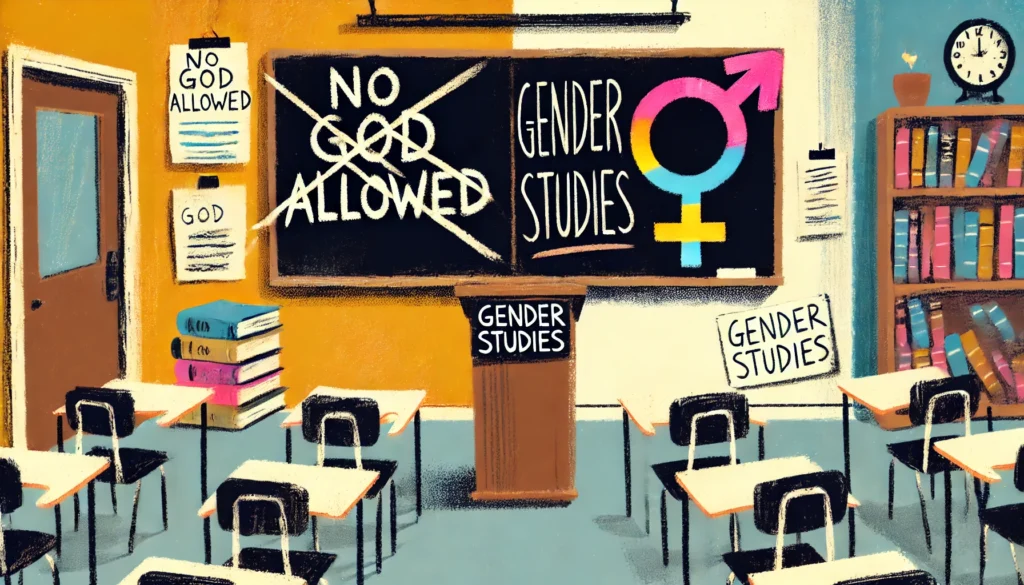In recent years, the education system has become a battleground for cultural and ideological debates. On one side, religious education, particularly teachings about God and traditional values, is being systematically removed from classrooms. On the other, controversial subjects like gender studies, which often delve into sexual orientation, gender identity, and complex societal issues, are being not only welcomed but sometimes mandated. This stark contrast raises an important question: If it is justified to exclude religious education because some parents do not want their children exposed to it, why isn’t the same consideration extended to parents who oppose gender and sexual education?
The Shift Away from Religious Education

Historically, religious education, particularly in countries with Christian roots, was a staple in schools. It was not about pushing a particular faith but offering a moral and ethical framework, teaching values like kindness, honesty, and respect. However, a growing movement advocating for the separation of church and state has led to the near-complete removal of religious content from many public schools. The argument is that not all students come from religious households, and it is not the school’s place to introduce religious beliefs to children whose parents may not subscribe to them.
While this argument has validity, it raises concerns about equity and fairness when the same logic is not applied universally. Many parents agree that schools should focus on academics such as math, science, and literature, leaving religious and spiritual teachings to the family. But should this principle not also apply to topics like gender identity and sexual orientation, which are equally personal and potentially controversial?
The Embrace of Gender Studies and Sexual Education
In stark contrast to the rejection of religious education, many schools have adopted curricula that include detailed discussions of gender identity, sexual orientation, and related topics. These lessons often begin at a young age, introducing complex concepts that even many adults struggle to navigate. The intention behind this shift is often framed as promoting inclusivity and understanding diversity. However, for some parents, it feels like an overreach into family values and beliefs, much like how others felt about religious teachings.
Critics argue that teaching about gender fluidity, diverse sexual identities, and related topics can conflict with personal or religious beliefs. Many parents feel uncomfortable with their children being exposed to discussions about sexuality and gender identity without their explicit consent. These topics, much like religious teachings, intersect with deeply held personal and cultural beliefs, making them a sensitive subject for classroom education.
A Question of Parental Rights
At the heart of this issue lies a crucial question: Shouldn’t all parents have the right to guide their children’s education on deeply personal matters, whether they involve religion or sexuality? If the answer is yes for religious education, why is it no for gender studies? The inconsistency suggests a double standard that undermines parental rights and freedoms.
There is a growing sentiment among parents that if schools are to remain neutral spaces, then neutrality should apply across the board. This would mean not only avoiding religious instruction but also steering clear of ideological teachings on sexuality and gender. Alternatively, if schools wish to provide education on these complex topics, there should be transparency and an opt-out option for families who prefer to address these subjects at home.
A Call for Educational Fairness
The education system should not be a place where certain beliefs are marginalized while others are celebrated. Schools must strive to present a well-rounded curriculum that reflects the diversity of thought in society. Including religious education alongside gender studies would create an environment where students learn to understand and respect a wide range of perspectives.
Ultimately, parents deserve the right to choose what their children are taught about life, morality, and identity. If the door is open to teaching about gender and sexuality, it should also be open to teaching about God and religious traditions. Anything less is a disservice to the diversity and inclusivity that education should champion.
